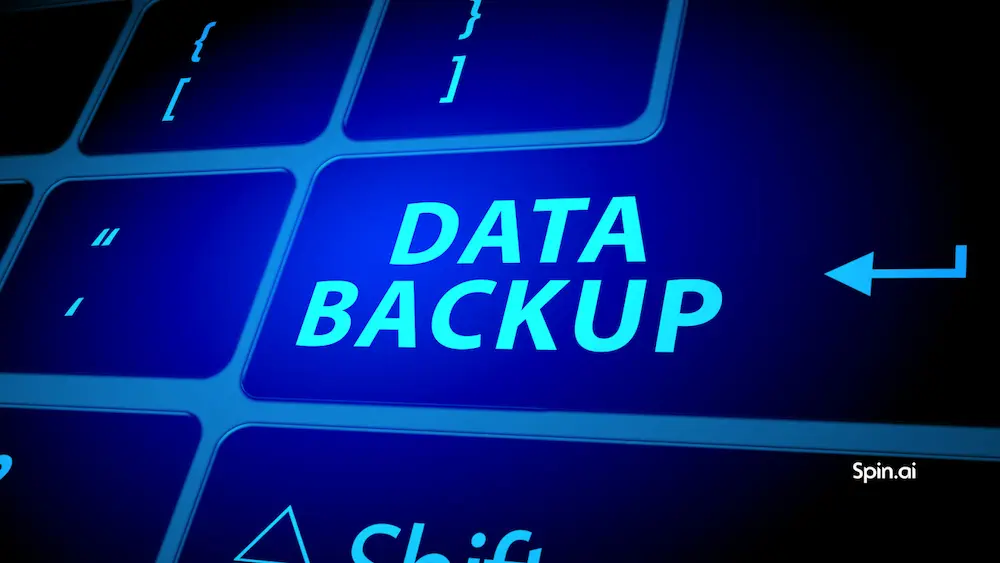Is my Office 365 Data Backed Up?
Backing up critical business data, including everything that resides within Office 365 (from contacts to calendars, emails to files), should be a standard business practice for everyone but quite often is not. If you are unsure whether the data that you’ve backed up with Office 365 is safe and secure (or is backed up at all), what should you do?
Here are some commonly asked questions to help ensure your Office 365 data is backed up in a way that ensures recovery and restoration.
What are the benefits of backing up Office 365?
First, backing up Office 365 offers many benefits, including protection against accidental deletion of important files. It also safeguards against cyber threats such as ransomware attacks, and ensuring compliance with data retention policies. By creating backups of your Office 365 data, you can rest assured that your business-critical information is secure and easily recoverable in case of any data loss event. Additionally, backing up Office 365 improves collaboration and productivity, as employees can access and restore data quickly and efficiently. Overall, investing in Office 365 backup solutions can provide peace of mind and ensure business continuity.
Does Microsoft Office 365 offer backups?
Yes, Office 365 has a backup feature in its OneDrive for Business product. OneDrive for Business allows users to store and backup files, share and collaborate on documents, and access files from anywhere. This backup feature protects against data loss due to accidental deletion, file corruption, or other issues. Office 365 also offers advanced security features and compliance tools to protect data and ensure it is secure.
How can I back up Microsoft 365?
To back up Microsoft 365, we recommend using a cloud-to-cloud backup service that automatically backups all of your data from Microsoft 365. Spin.AI’s Microsoft 365 backup and recovery solution, SpinBackup, gives you enterprise-grade data protection starting at just $3/user/month. This ensures all your organization’s emails, files, and other sensitive data are safe and secure in case of accidental deletion, hacking, or other unexpected events.
Another option is to manually back up your data by exporting key emails or files to a local device or external storage. It is critical to regularly back up your Microsoft 365 data so you can easily restore it if needed.
How do I back up my Office 365 user data?
Backing up your Office 365 user data is essential to ensure you do not lose important information in case of accidental deletion or security breach. One way to backup your Office 365 user data is by using third-party cloud backup services that are specifically designed for Office 365. Your emails, contacts, calendars, and other important data is automatically backed up to a secure cloud storage facility, allowing you to easily restore them if necessary.
Another option is to use the built-in backup and recovery features in Office 365, such as retention policies and eDiscovery tools. By implementing a reliable backup strategy, you can protect your valuable Office 365 user data and avoid data loss issues.
Is my Office 365 email backed up?
While Office 365 has built-in redundancy and disaster recovery measures in place, it does not provide a comprehensive backup solution for your email. It is important to have a separate backup system in place to protect your email data from human error, cyberattacks, or accidental deletions. By using a third-party backup solution, you can ensure that your Office 365 email data is securely backed up and easily recoverable in the event of data loss. Having a backup system in place will give you peace of mind knowing that your important emails are safe and protected.
Does it matter where I store my Office 365 backup?
Yes, the location of your cloud server is important when storing backup data.
Here’s a prime example: you have data that needs to comply with the General Data Protection Regulation (GDPR). Here’s why the location of your cloud server is important:
- GDPR mandates strict rules on data protection and privacy for individuals within Europe. One aspect of GDPR is specific requirements concerning data transfer outside the EU. The regulation prefers that the personal data of EU residents be stored within the EU. Therefore, if your cloud servers are located outside of Europe, you need to ensure that the country provides adequate data protection as recognized by the EU or that proper safeguards are in place.
- Storing data in a location that does not comply with GDPR can expose your business to legal and regulatory penalties. For example, if data is stored in a country where the laws allow for governmental surveillance or access to data that does not meet GDPR standards, your company might face fines and other legal actions.
When selecting a cloud provider for storing backup data, choosing one that offers options for storing data in compliance with various regulations like GDPR is essential. Many providers now offer region-specific storage solutions to help businesses comply with local and international data protection laws. Moreover, companies should ensure they have robust data processing agreements with their cloud service providers, clearly outlining responsibilities and ensuring compliance with the regulations related to your specific business data.
The bottom line is while your data may be somewhat backed up and protected natively within Microsoft, it’s in your best interest to use an independent backup service for more expansive backup/recovery options, added redundancy, secure data management, and regulatory data compliance.
Was this helpful?
How Can You Maximize SaaS Security Benefits?
Let's get started with a live demo
Latest blog posts
Why Google Drive Backups Are Important
Google Drive offers customers a unique blend of robust security features to keep their data...
Evaluating the Best Backup Services: What to Look For and Popular O...
If you’re here right now you’ve probably realized how important it is to backup your...
Brewing Trouble: How a Starbucks Ransomware Attack Poured Cold Wate...
Cybercriminals often carry out attacks around holidays as this helps to ensure the most amount...


